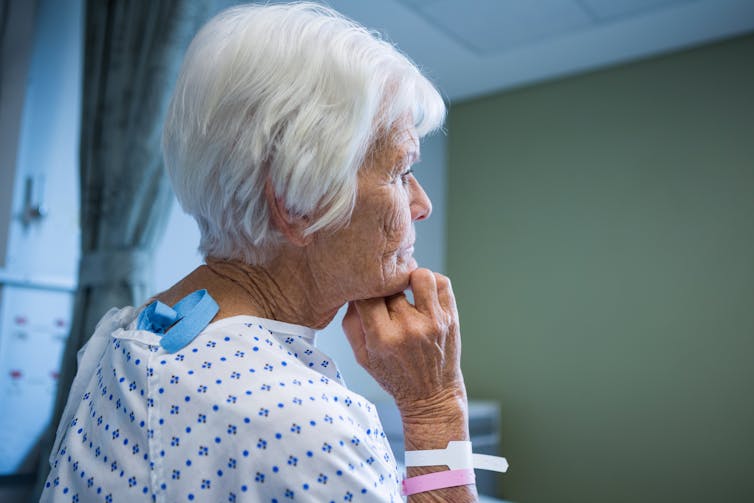Intimate companion violence (IPV) is a world gendered epidemic that inordinately impacts females. Worldwide, 25-50 per cent of ladies report abuse in a private relationship and two out of three victims of IPV are feminine.
Though each men and women expertise abuse by the hands of their companions, girls disproportionately expertise extra extreme abuse and girls and women usually tend to be killed by an intimate companion than every other member of society.
The various faces of IPV
There are a number of types of IPV, together with sexual, psychological, monetary and bodily abuse. Accidents related to bodily violence and the psychological well being penalties of abuse are usually identified. Ladies generally report bodily signs together with persistent ache, sleep problems and gastrointestinal points. These well being penalties linger after abuse has ended, and should not grow to be obvious till years later.
Among the many widespread however lesser-known penalties of IPV is a heightened danger for heart problems.
Heart problems is a number one reason for dying for women and men. Abuse survivors of each sexes have elevated charges of heart problems, however the improve is increased in girls.
Regardless of the connection between IPV and heart problems in girls, this hyperlink isn’t well-known, even amongst health-care professionals.
Components driving coronary heart dangers in IPV survivors
(Shutterstock)
Frequent psychological well being points in survivors of abuse — together with melancholy, anxiousness and PTSD — are identified danger components for heart problems. Nonetheless, these circumstances are linked to heart problems in men and women, whereas lots of the cardiovascular penalties of IPV are particularly linked to girls. Rising information suggests the organic response to psychological well being stressors could also be extra pronounced in girls, a attainable rationalization for gender disparities in heart problems following abuse.
Ache can be a stimulus for heart problems: people with persistent ache have charges of heart problems practically double the common. IPV is a number one reason for bodily damage for girls and girls who expertise violence have twice the danger of persistent ache than those that don’t.
Bodily accidents related to violence happen in each sexes, however research usually discover that feminine victims of abuse are extra possible than males to maintain bodily accidents and that these accidents are extra extreme in feminine victims.
Ladies in danger
Whereas any of those penalties of IPV may clarify a rise in heart problems charges and mortality, they needn’t work in isolation. Psychological well being circumstances, together with anxiousness, melancholy and PTSD, improve ache sensitivity, which may exacerbate heightened sensitivity to ache in girls.
Inequities in medical therapy may contribute to the upper charges of heart problems mortality in girls who expertise abuse. Signal and signs of heart problems could also be dismissed or wrongly attributed by each sufferers and physicians. Greater than half of ladies are unaware of their danger for heart problems, which can end in them dismissing signs or attributing signs to non-cardiovascular points.
Learn extra:
Dying to be seen: Why girls’s danger for coronary heart illness and stroke continues to be increased than males’s in Canada
Importantly, health-care suppliers may overlook broader contextual components surrounding girls’s coronary heart well being. Intercourse and gender-based bias within the evaluation and therapy of heart problems additionally results in girls not being handled in accordance with pointers, together with delayed and fewer intensive therapies.
Figuring out cardiovascular dangers confronted by victims of abuse is a crucial step in fixing this rising disaster. Partnerships between social scientists and health-care professionals are essential to making a crew that identifies girls in danger; develops methods to coach victims and practitioners on dangers; and implements therapies and interventions to cut back the adversarial well being penalties of IPV, whereas contemplating the sufferer’s life circumstances.
A key impediment for these plans is the lack of understanding about what organic modifications drive heart problems danger related to IPV. Whereas the associations between ache and psychological well being with cardiovascular well being are established, shockingly little is understood in regards to the modifications throughout the coronary heart that make it extra prone to illness.
A name to motion

(Shutterstock)
The lack of understanding on the hyperlink between cardiovascular well being and IPV is reflective of the general data hole in girls’s well being.
Heart problems is a number one reason for dying for women and men, and but most analysis continues to concentrate on male laboratory animals and sufferers. The main focus of analysis on males is regarding as a result of heart problems is profoundly totally different between females and males. Investments in girls’s well being analysis just like the Nationwide Ladies’s Well being Analysis Initiative in Canada are essential to assist fundamental science analysis wanted to know the mechanisms of danger and the distinctive pathology in girls.
The siloed nature of analysis and even medical apply presents different challenges. The systemic results of IPV — from bodily ache to psychological well being — calls for a co-ordinated health-care crew that considers the complicated interactions between the results of abuse. Furthermore, IPV must be handled as a world public well being disaster requiring experience from social scientists to tell related and dependable health-care assist for girls.
Lastly, the systemic difficulty of sexism in science and medication requires addressing the continued gender bias in cardiology and cardiovascular analysis. This requires better assist for health-care professionals to higher perceive and advocate for feminine sufferers’ coronary heart well being.
Concurrently, girls should be empowered with the data wanted to make impartial and knowledgeable health-care choices, one thing that calls for a big funding in girls’s well being analysis — a invoice that’s lengthy overdue.








